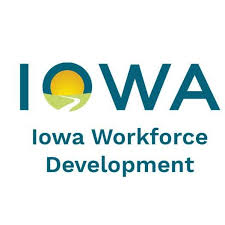Pearlstein: Des Moines becoming a city to emulate

Alex Pearlstein, vice president with Market Street Services, a national economic, community and workforce development consulting firm based in Atlanta, had a rare opportunity several years ago.
When the company — which has worked in 34 states with more than 160 communities — was contracted by Des Moines business leaders to facilitate and conduct all research needed to frame and launch Capital Crossroads, Pearlstein had the chance to call himself a Des Moines resident for five years while he worked with the Capital Crossroads team.
“That was the first and only time I lived in a community in which I was managing a project,” Pearlstein said. “I had the unique perspective of being a resident and stakeholder as well as a consultant.”
Pearlstein, who has worked for Market Street for 12 years, calls himself an “odd duck,” as Des Moines was on his radar before he moved here. He said he saw mentions of the city in several news articles when Des Moines was in the midst of acquiring more businesses in the financial services industry. When he moved here in 2009 — initially for his wife’s education at Des Moines University — he said he was “pleasantly surprised.”
“It was a more dynamic and livable place than even I had considered,” he said. “But the perceptions were of corn and cows. Or, when an Iowa State or Iowa game was on television and the first image shown was a field of grain. I always thought, ‘We have buildings here.’ ”
However, Pearlstein said Des Moines is not the only community facing a gap between perception and reality. He said many Midwestern communities face the same challenges when it comes to perceptions and also figuring out how to disprove those perceptions.
“Omaha, Rochester (Minnesota), Sioux Falls — all are growing and have good jobs and high wages and income, but they’re just not on people’s radars,” Pearlstein said. “They are all trying to break through the noise and appeal to people who are looking for a place to move that has great quality of life, ample jobs and good schools.”
But Des Moines is recognized among those cities, he said, and it is a city to emulate. Other cities and those in the economic development and real estate industries notice the rankings Des Moines rakes in, Pearlstein said.
“In (Market Street’s) research, we always compare our client communities to three benchmarks, and a lot of people say they want to be compared to Des Moines,” Pearlstein said. “Fort Wayne (Indiana) just took a trip to Des Moines to see what’s happening there. If you talk to Jay Byers, he will tell you communities come to Des Moines all the time because they want to know — what’s our secret sauce?”
Pearlstein said that he currently is working with Quad City leaders and that Des Moines is high in their minds, too.
Word of Des Moines is slowly but surely getting into the minds of others across the country, thanks to marketing strategies executed by the Partnership, Pearlstein said, mentioning the organization’s #SeizeDesMoines social media campaign as well as its appearance at South by Southwest in Austin, Texas, this spring. Not only are those effective strategies, he said, but they’re good ways to reach millennials, one of the most challenging demographics to penetrate.
Can those strategies be applied during the caucuses and the NCAA basketball tournament? Pearlstein thinks so. Ultimately, it comes down to getting face time with visitors.
“It’s a really common practice for economic development groups to capitalize on the most desirable event of the year as an opportunity to influence people. You have a more captive audience and less competition from other communities,” he said, “so you have a much better likelihood of successfully engaging them and changing their perceptions.”










